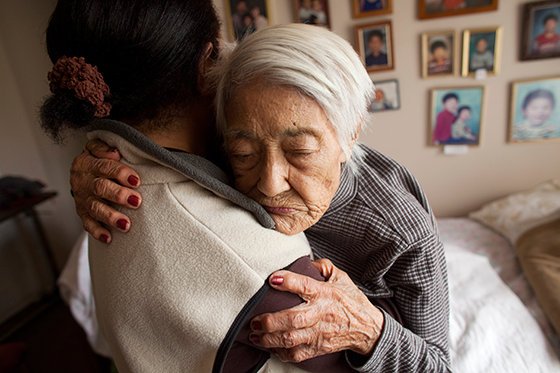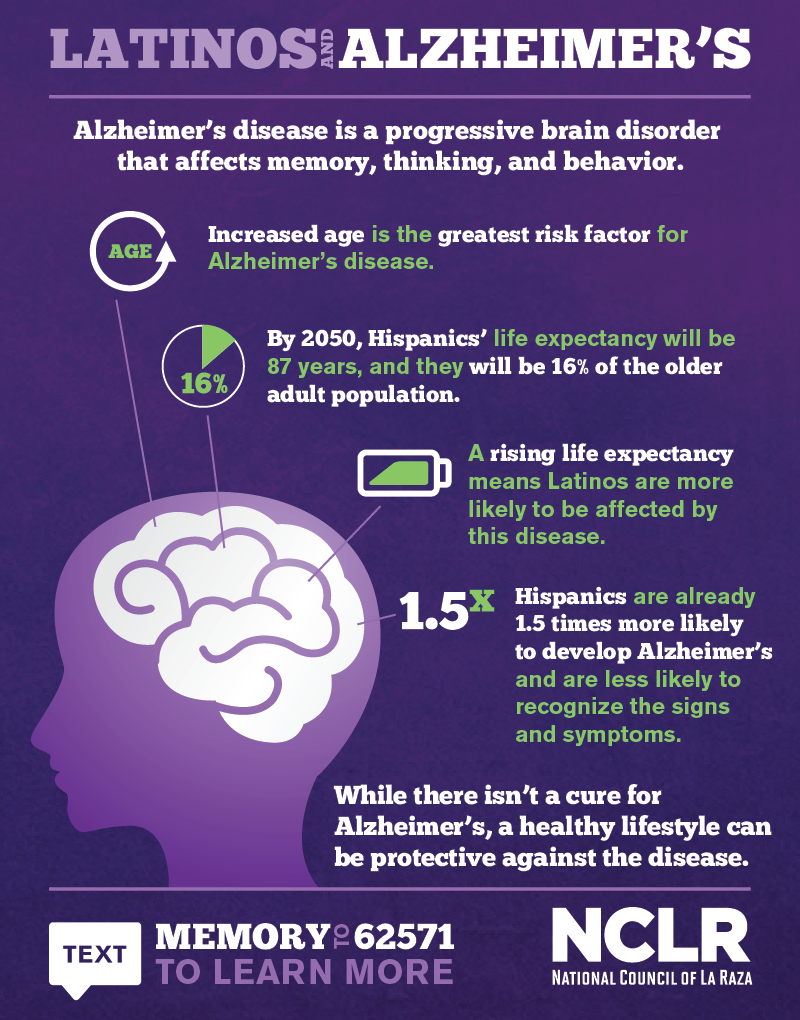National Minority Mental Health Awareness Month: Spotlight on LAMDA
By Sarah Neuberger, Institute for Hispanic Health Intern, NCLR
“Every grandchild deserves a story.”
Constantina Mizis had a personal reason for founding the Latino Alzheimer’s & Memory Disorders Alliance (LAMDA): she does not want others to go through the same battle she endured as a child watching her grandmother struggle with dementia.
“The stories a grandparent tells a grandchild are a very special thing. With memory loss, you not only lose memories, but beautiful stories,” says Mizis, who serves as CEO of LAMDA, a community-based organization in Chicago that belongs to the NCLR Affiliate Network.
 As National Minority Mental Health Awareness Month comes to an end, NCLR wants to recognize the outstanding work that LAMDA has done to address issues related to the mental health and well-being of Latinos. LAMDA’s mission is to educate, empower, and engage caregivers and family members of people suffering from Alzheimer’s disease and memory disorders.
As National Minority Mental Health Awareness Month comes to an end, NCLR wants to recognize the outstanding work that LAMDA has done to address issues related to the mental health and well-being of Latinos. LAMDA’s mission is to educate, empower, and engage caregivers and family members of people suffering from Alzheimer’s disease and memory disorders.
According to Mizis, LAMDA takes a comprehensive approach to establishing bridges of understanding between patients, caregivers, family members, and physicians. The organization provides compassionate support programs and training to strengthen skills, and it has served more than 750,000 Latino families and health care providers since its inception in 2008.
“There are several objectives to the program,” she says. “We want to show patients and caregivers how to read information about medication and how to have a conversation with a doctor. We have bilingual and bicultural support programs, memory screenings, and English-as-a-second-language practice sessions. Also, we offer nutrition programs, since so many of the health issues Latinos face mean they have an increased risk for Alzheimer’s.”
In addition to enhancing the care provided to Latinos by health care professionals, LAMDA organizes programs for physicians interested in deepening their understanding of cultural issues specific to Latinos when providing medical care for patients with Alzheimer’s disease.
In the Latino community, there is a considerable need for the services LAMDA provides. Not only are Latinos at a disproportionately higher risk for conditions associated with mental illness, they are also much less likely to seek treatment or receive culturally and linguistically appropriate care. They face issues such as later diagnoses, low rates of health insurance, limited access to medical services, higher rates of diabetes and high blood pressure, and cultural beliefs that are not conducive to addressing Alzheimer’s symptoms at an early stage. According to the Alzheimer’s Association, Latino life expectancy will increase to 87 by 2050, exceeding all other ethnic groups in the U.S.
“Between 2008 and 2030, the Latino population aged 65 and older will increase by 224 percent. The non-Hispanic population of that age will increase by 64 percent,” says Mizis. “Given that the senior population will continue to grow in coming years, we recognize the importance of educating and empowering Latino families. And when you empower one person, you empower the whole community.”
LAMDA has been a key partner in the implementation of NCLR’s Mantenga Su Mente Activa (Keep Your Mind Active), a project led by promotores de salud (community health workers) that aims to increase awareness, knowledge, and actions with regard to Alzheimer’s disease among Latinos.
To learn more about the work LAMDA is doing to reduce mental health disparities and how you can preserve your loved ones’ stories, visit their website at http://latinoalzheimersalliance.org. For more information about Latinos and Alzheimer’s, visit the Alzheimer’s Association, which has information available in Spanish as well as English.

